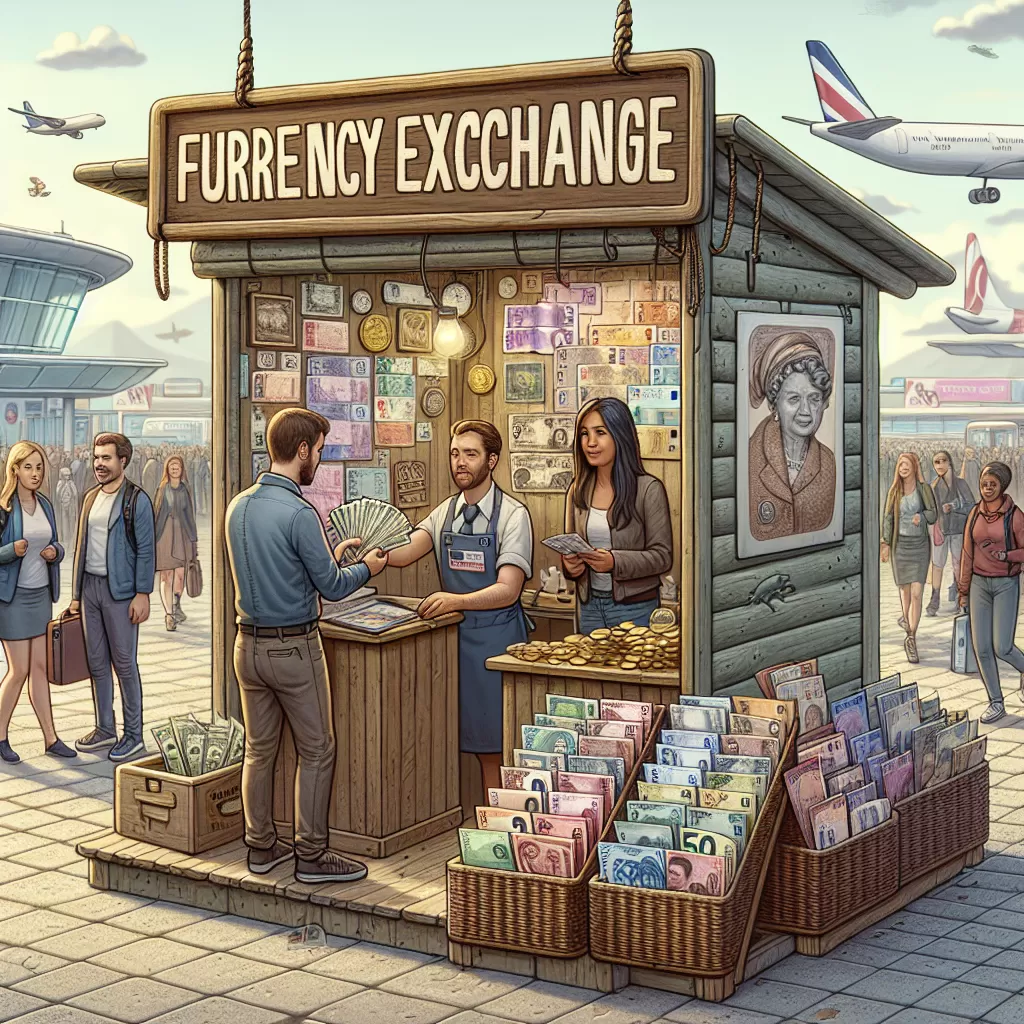I Have Foreign Currency Where Can I Exchange It
Follow Currency Mart April 10, 2024
Where to purchase Foreign Currencies?

Introduction
Exchanging foreign currency can sometimes feel like navigating a labyrinth. For those who are wondering, "I have foreign currency, where can I exchange it?", this article provides comprehensive insights on the various options available. I, as the Guardian of currency exchange, will guide you through your choices, helping you to understand the pros and cons of each so you can make the most informed decision.Banking Institutions
Let's start with the most traditional route - banks. Banks are a reliable option for currency exchange but their rates may not always be as competitive as other options. However, if convenience and safety are your primary considerations, banks do offer a safe and secure platform for foreign exchanges. Some banks also provide options for online exchange, allowing you to transact from the comfort of your home.Currency Exchange Bureaus
Next on our list are currency exchange bureaus. These are businesses that trade exclusively in money. Examples include ICE (International Currency Exchange), Travelex, and Money Mart. They offer competitive rates compared to most banks, but can sometimes hit you with hidden fees. It’s advisable to always inquire about the total cost before proceeding with the exchange.Online Currency Exchange Platforms
With the evolution of technology, online currency exchange platforms are growing in popularity. Companies such as OFX, Wise (formerly TransferWise), and Revolut often offer better exchange rates than financial institutions. However, these platforms might have varying transaction sizes, processing times and fees, so it's wise to review the terms before proceeding. Some platforms also offer an app, allowing you to convert money on the go.Airport Exchange Kiosks
Most International airports around the world have currency exchange kiosks. However, this convenience often comes with a higher cost. Typically, these booths do not offer the most competitive conversion rates and often have higher service fees. While they might be useful for last-minute exchanges, they should not be your first choice for exchanging larger amounts.Peer-to-Peer Currency Exchange
This option is more recent, driven by the sharing economy and advancement in technology. Peer-to-peer platforms like CurrencyFair and Midpoint allow for direct conversion between two parties in different countries using an exchange rate that both parties agree upon. It may take more time to find a matching pair, but it often results in a better rate.Post Office
In some countries, especially in the UK, the local post office offers currency exchange services. The rates are usually competitive, and for the British Post Office in particular, there are no commission fees.Prepaid Travel Cards
Prepaid travel cards also offer a means of spending abroad without actually exchanging physical cash. Cards like the Revolut card, for instance, allows you to load currencies on the card and spend it overseas at competitive foreign exchange rates.Conclusion
There are numerous avenues for foreign currency exchange. The best option depends on your specific needs, and this includes considerations such as the amount to be exchanged, the urgency of the transaction, and the exchange rates on offer. While some options may offer more convenience, others might provide better value for money. Hence, always ensure you understand the total cost, including potential hidden fees, before settling on a currency exchange platform. With this guide from your Guardian of currency exchange, you should be well-equipped to navigate the worldwide maze of currency exchange.
Where to purchase Foreign Currencies?